Several colleagues have enthusiastically recommended Lona Kozik’s theory courses to me over the past couple of years, but it wasn’t until I read a blog on her site titled “Why I like the ABRSM Grade 6 Theory exam” that I got really curious about her.
I love music theory, but I certainly didn’t learn to love it by slogging my way through ABRSM’s Music In Theory In Practise books. Indeed, like so many of us, I only did it because it was a requirement to continue through ABRSM’s grades.
ABRSMs Grade 6 Theory exam is substantially different to Grades 1-5. And having talked it through with Lona, I kinda wanna study it myself!
I interviewed Lona in January and over the course of our brief chat she enthusiastically made the case for learning theory. As she puts it, once you understand music theory, “it’s like listening in HD”.
I’ll be sharing the full video soon but here’s a little clip to whet your appetite. (Transcript below!)
Find out more about Lona’s course ‘Mastering Grade 6 Music Theory: Composition, Harmony, and Analysis’.
Transcript
Lona
That's why I love it because you can really get into the nitty gritty of things and you can really understand what music theory is about in a meaningful way.
Garreth
And then when they encounter a piece that's written in the style, or even influenced by it, then they have a clear understanding of the creative decisions the composer's made, and why they feel the way they do. Even an appoggiatura that's a feeling, isn't it?
Lona
Yes.
Garreth
…that tension and resolution many student pianists see that and don't understand why it makes them feel the way they do or why it has to be played in the way it does.
Lona
That's right. This can affect your playing. You can make good decisions. You can understand the architecture of the piece you're playing.
In a way, your role as a musician, these are old pieces, if you're doing Bach, Mozart, whatever you're doing, two, three hundred years old, that needs some interpreting, doesn't it? If you know the style well enough, you can, put things over almost like an actor, you can make decisions and of course it's important to have good intuition.
And of course, a lot of this comes naturally to a musician, but, being able to articulate those things in specific ways. Sharpens the tool, that's why I think it's the kind of study that will get you past a good intermediate into more advanced playing.
I also had a student, he's now doing the beta round of Trinity diploma. He went through grade six, seven, eight with me. At the end of grade eight, he told me, this is such a great comment, I couldn't believe he said it. He said, “I go to a concert now I really love Baroque music and I can hear everything now.” It's like listening HD. You can really hear everything and it just makes everything sharper and clear. So even just listening is enhanced.






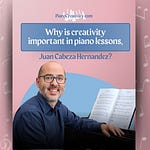

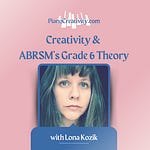

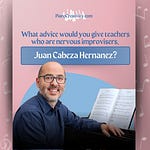
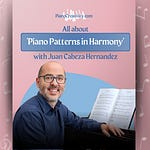
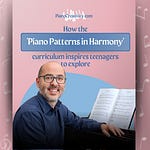
Share this post